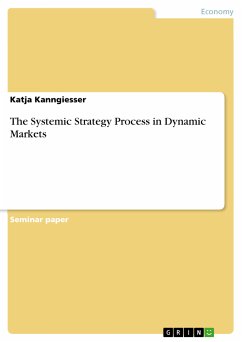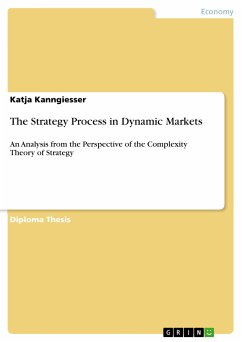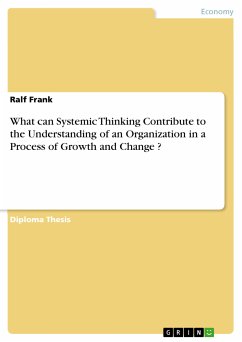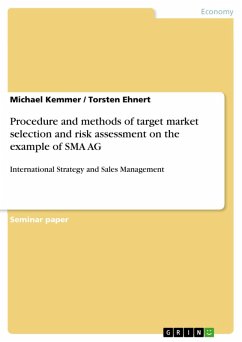Seminar paper from the year 2005 in the subject Business economics - Business Management, Corporate Governance, grade: 1,3, European Business School - International University Schloß Reichartshausen Oestrich-Winkel, course: Seminar International Management and Consulting, language: English, abstract: This paper is composed of six chapters. Subsequent to this introduction the second chapter will present the traditional strategy process with its underlying strategic paradigms and illustrate the deficiencies this process shows in dynamic markets. Considering these deficiencies the strategic paradigm of the complexity theory of strategy will be introduced in the third chapter. This new paradigm provides the theoretical underpinning for a systemic strategy process, whose general characteristics will be described in the second part of the third chapter. The fourth chapter is devoted to the course of the systemic strategy process with its particular stages - namely business ecosystem inter-pretation, business model review, strategy options review, strategy implementation, and strategy performance measurement. In the following chapter differences of the new sys-temic strategy process compared to the traditional strategy process will be pointed out to show whether it is apt to compensate the deficiencies of the traditional strategy process in dynamic markets. The closing chapter presents a summary of the key findings of the paper and the corresponding implications for researchers and managers.








